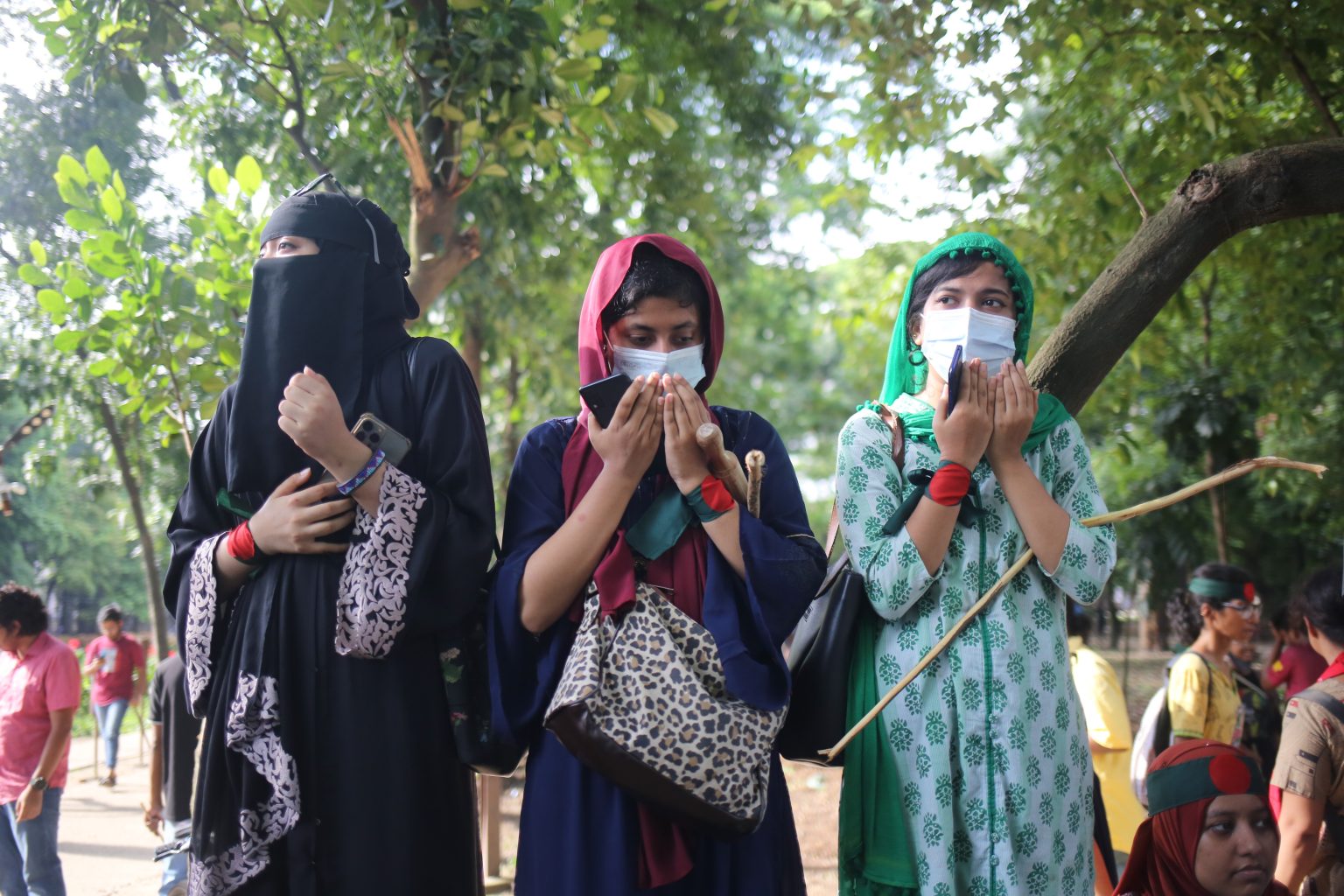One year ago, on July 22, 2024, amid mass arrests and internet blackouts, the anti-discrimination student movement reached a critical juncture.
Nahid Islam, one of the lead coordinators of the movement, issued an emergency four-point demand with a 48-hour ultimatum. The demands were clear: restore internet access, lift the curfew, remove security forces from campuses, and ensure the safety of student leaders. In a rare pause, the movement also temporarily suspended its “complete shutdown” programme.
But the country was already reeling.
Law enforcers were carrying out a sweeping “combing operation,” targeting student protestors, and also leaders and activists of BNP and Jamaat-e-Islami. Reports varied, but by July 23 morning, between 1,200 to 2,000 people had been arrested nationwide. The capital alone saw more than 690 arrests in a single night.
The city was under tight lockdown, with military vehicles parked at key intersections and helicopters circling overhead. A tense silence filled the air, broken only by the fear of arrest. Even during a brief three-hour curfew break, people moved nervously—unsure who would be picked up next.
Despite the overwhelming presence of security forces, small pockets of protest still flared. In Mohakhali, students briefly blocked roads before being forcibly dispersed.
By then, the violence had already taken a deadly toll.
According to hospital and media reports, at least six more people died that day from injuries sustained in earlier clashes. Dhaka Medical College Hospital had handed over 70 bodies between July 19 and 22, with the national death toll reportedly reaching at least 155.
Amid this chaos, Prime Minister Sheikh Hasina signed a summary to reform the quota system in government jobs—one of the movement’s original demands. But she also doubled down, accusing BNP and Jamaat of orchestrating violence, and warning of stronger actions.
That same day, army chief General Waker-Uz-Zaman visited Jatrabari—one of the key protest sites—saying normalcy would return soon. The home minister extended the curfew, while also adding another general holiday for July 23. Internet services remained suspended for a fifth straight day.
As darkness fell, the University Teachers’ Network issued a stark statement—urging the government to stop the killings, end the curfew, and restore communications.
But for many across the country, especially grieving families, the damage had already been done. The silence of that day was not peace—it was fear.


